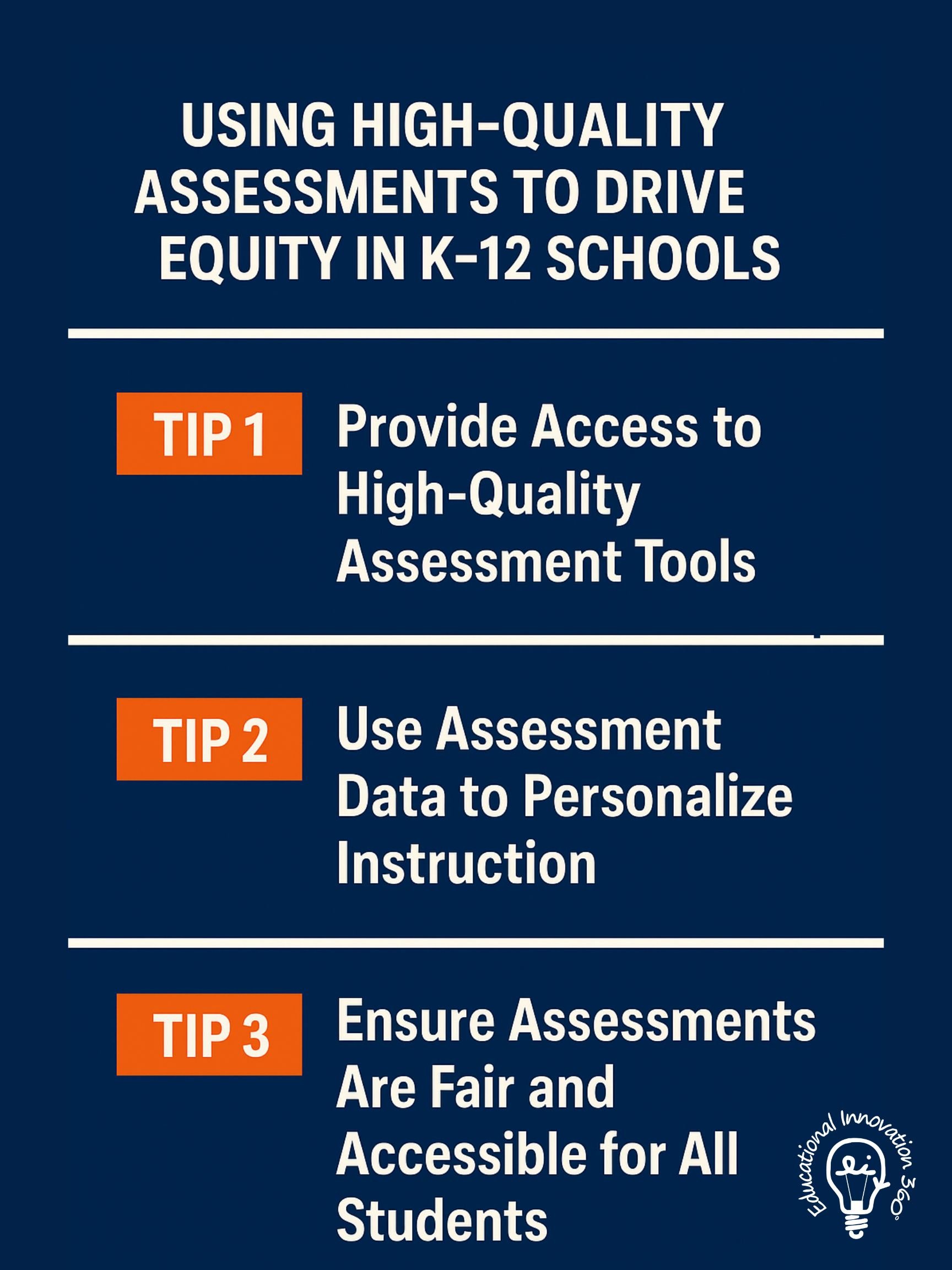Leading with Data: How Principals Can Use High-Quality Assessments to Advance Equity and Student Success
As school principals and educational leaders get ready for the upcoming academic year, they confront pivotal decisions about how to measure student learning, among the ongoing challenges. Carissa Moffat Miller, Executive Director of the Council of Chief State School Officers (CCSSO), underscores the critical role of maintaining robust and high-quality assessments. These tools are essential not only for accurately gauging student performance but also for identifying and addressing disparities in education. By leveraging meaningful assessment data, school leaders can implement strategies to support every student effectively, ensuring equity and excellence in learning outcomes.
How Can High-Quality Assessments Drive Equity and Student Success?
School leaders know the power of high-quality assessments in driving student success and equity. The Council of Chief State School Officers (CCSSO) emphasizes that these tools are vital for delivering unbiased and reliable insights into student performance. High-quality assessments not only highlight areas of progress but also pinpoint students needing additional support, enabling targeted interventions. Since 2013, CCSSO has championed assessment standards aligned with college and career readiness, providing actionable progress data while adhering to best practices that ensure accessibility for all learners (CCSSO, 2020).
Prioritizing Student and Educator Well-Being in a Post-Pandemic World
The COVID-19 pandemic disrupted traditional education, forcing public school buildings to close and making distance and online learning the norm. This shift disproportionately impacted vulnerable students, exacerbating existing inequities (Tadesse & Muluye, 2020). As school leaders prepare for the upcoming year, their focus must remain on the well-being and safety of both students and educators. Equally important is addressing students’ academic, social, and emotional needs to foster recovery and growth in the new educational landscape (EAC South, 2023).
The Ongoing Importance of High-Quality Assessment Tools
The Council of Chief State School Officers (CCSSO) continues to emphasize the importance of ethical, first-class assessment tools, even in the face of challenges. These tools are essential for accurately measuring student learning and guiding educators and administrators in meeting each student’s academic needs. As schools navigate uncertainties in the upcoming year, states must adopt innovative and adaptable strategies for student assessment. Reliable data on student performance is critical to addressing educational disparities, especially those worsened by the pandemic (CCSSO, 2020).
Critical Priorities Checklist for the Upcoming School Year
For Educators:
Ensure access to high-quality assessment tools to accurately evaluate students' academic standing.
Use assessment data to personalize instruction and meet individual student needs effectively.
For Parents and Families:
Provide clear and accessible information about their child’s academic progress.
Share detailed plans outlining how the school will address their child’s educational needs.
For Policymakers:
Collect and analyze data on the impact of COVID-19 on student learning.
Utilize precise student performance data to guide informed policy decisions.
For State Leaders:
Guarantee equitable access to high-quality assessment tools for all students.
Offer support and resources to ensure assessments are administered reliably.
Partner with educators to implement responsive strategies for identified student needs.
Collaborative Solutions for Educational Success
The pandemic has underscored the importance of a thoughtful and collaborative approach to education. As states work to administer assessments and develop innovative methods to measure academic progress, the Council of Chief State School Officers (CCSSO) remains dedicated to supporting these efforts. By providing essential tools and resources, CCSSO helps ensure that every student has the opportunity to thrive, even in these unprecedented times.
Adapting to a New Educational Landscape
The pandemic has transformed education systems across states, prompting varied responses to measuring academic progress. While some states continue to administer statewide assessments to monitor ongoing progress, others are leveraging prior innovations and exploring modern approaches to address student needs in disrupted school years. COVID-19’s dynamic impact on education underscores the necessity of adaptable strategies. The Council of Chief State School Officers (CCSSO) is steadfast in supporting states through these challenges, ensuring educators have access to high-quality, relevant tools. These resources are essential for accurately measuring student progress and guiding informed decisions to shape the future of education.
References
CCSSO releases statement on assessments in the next academic year | CCSSO. (2020, July 20). https://ccsso.org/blog/ccsso-releases-statement-assessments-next-academic-year
Tadesse, S., & Muluye, W. (2020). The Impact of COVID-19 Pandemic on education system in Developing Countries: A review. Open Journal of Social Sciences, 08(10), 159–170. https://doi.org/10.4236/jss.2020.810011
Guiding Principles for Creating Safe, Inclusive, Supportive, and Fair school Climates - EAC-South. (2023, October 16). EAC-South. https://eacsouth.org/guides-and-tools/guiding-principles-for-creating-safe-inclusive-supportive-and-fair-school-climates/

